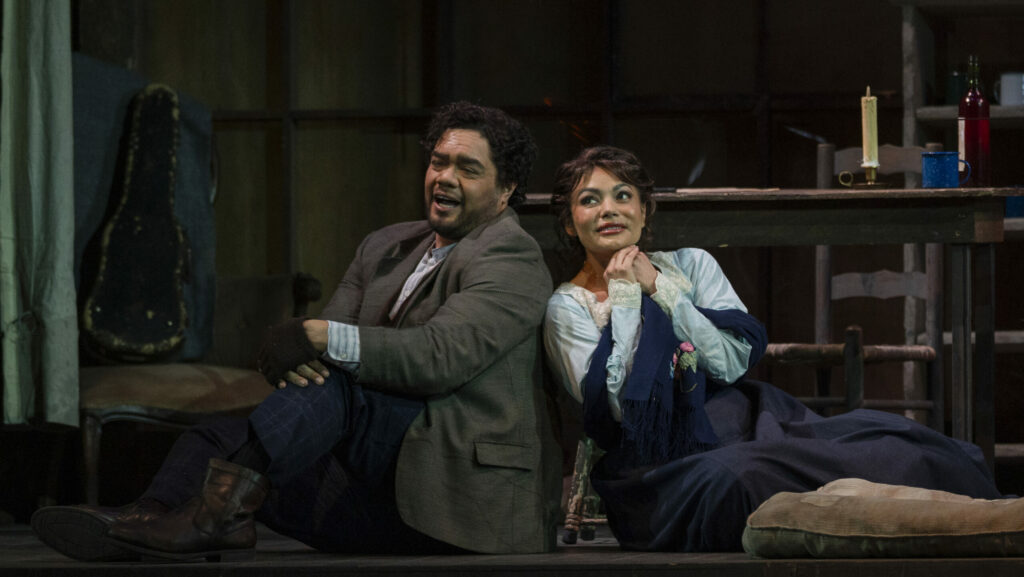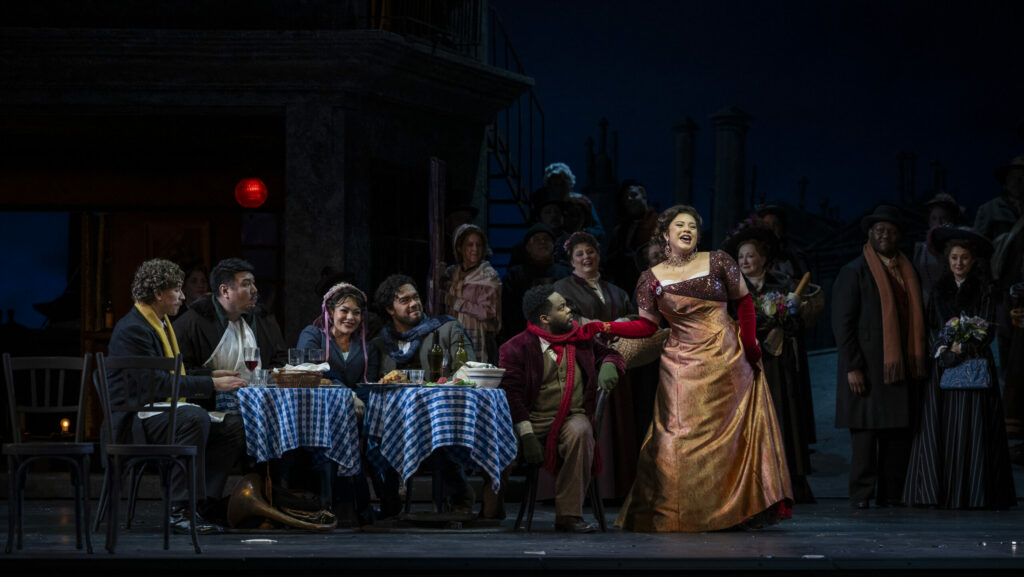
Michael Brosilow
Much of the beauty of Bohème has nothing to do with the veristic Parisian soundscapes Puccini orchestrated into the score or the grand spectacle at Café Momus in Act II, but the intimate text setting built into every aria and ensemble. Every soprano-in-training has attempted “Mi chiamano Mimì” before they were ready just so they could appreciate delicate shift from Mimì’s mundane account of her days—“Sola mi fo il pranzo da me stessa. Non vado sempre a messa, ma prego assai il Signor”—to a lush, rising “Ma quando vien lo sgelo il primo sole è mio.”
This is to say that as one of those keen voice students, when it comes to the scenography, truly, I don’t ask for much from Bohème. Even such a by-the-book production as this one can be charming with the right singers. In her director’s note Melanie Bacaling underscored her production was set in the Belle Époque. But her distinction between the opera’s original 1830s setting and her own late-nineteenth century interpretation didn’t lead to any meaningful differences from Zeffirelli’s classic 1981 staging—the director’s obvious referent.
There was a certain lure to the Pene Pati’s gorgeous tenor but mostly in his middle and lower registers. Early on he demonstrated some strain with his top in “Che gelida manina” that continued to surface throughout each act. It was so consistent throughout the performance that I was left wondering if he was sick for his Lyric debut.
And I wish I could say that Chicago native Ailyn Pérez’s “Mi chiamano Mimì” demonstrated the solid vocals she is known for, but I was too distracted by intonation issues and overuse of chest voice in the bottom register. Both were a consistent problem that found their way into “Oh! Buon Marcello” and “Sono andati?” from the Act IV finale. The strident timbre would have been welcome for a performance of the murderous Tosca, but it was out of place for Mimì at her most pitiful.

Michael Brosilow
Quickly, I realized that this Bohème was going to be a bit of a slog. But there were a few bright spots in the night. The conductor, Jordan de Souza, brought out coloristic details in the lower strings and brass. Soprano Gabriella Reyes was a fierce Musetta whose delightfully spry “Quando me’n vo’” proved to be the vocal highlight of the opera. Will Liverman delivered his usual sturdy baritone for Marcello even though at times it seemed he was going through the motions. And as Colline, Peixin Chen sang “Vecchia zimarra, senti” with endless line and the most sincerity one could possibly devote to a coat.
But here lies the rub. What type of performance of Bohème is dominated by “Quando me’n vo” and an ode to a dirty old jacket? I understand they might not devote much preparation to opera’s famous war horse, but it shouldn’t feel like we’re watching a rehearsal with the amount of intonation and vocal glitches I heard last Friday night. Based on the shouts of “bravo” I heard from the man humming along to every aria behind me, it seems the claques didn’t agree. But the Lyric ought to present operas worthy of its reputation, even ones as worn-out as Bohème.



